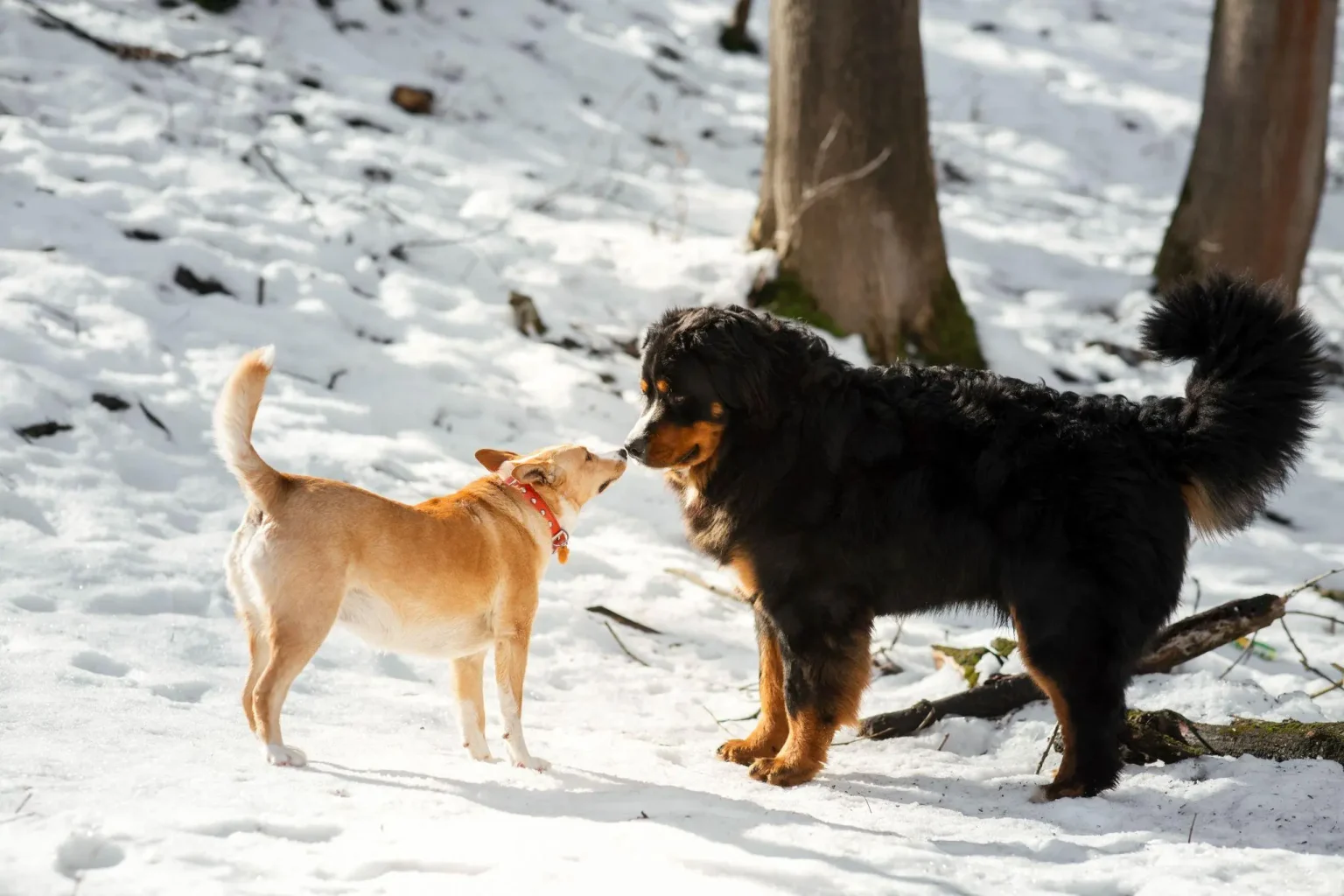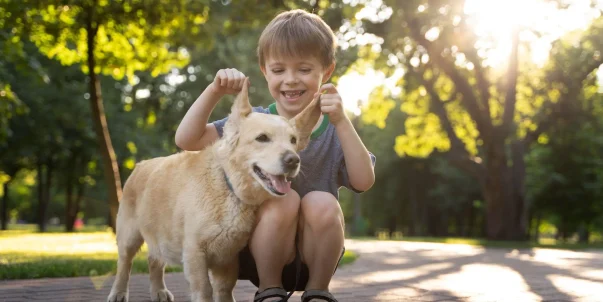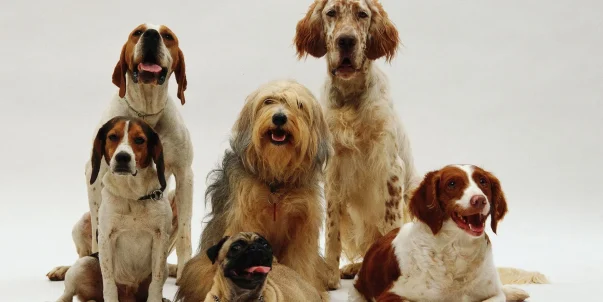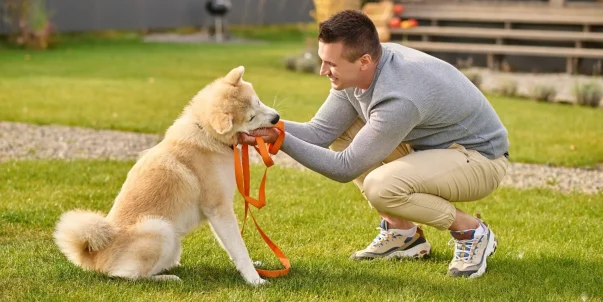
Winter is here! And it’s time to pull out your coziest hoodies, enjoy your favorite hot drinks, and charm of the season. While you’re layering up for the cold, don’t miss your furry friend!
Winter can be a magical time, but it brings its own challenges in keeping your pets warm and healthy throughout the season.
Understanding how to protect pets in winter goes beyond just providing extra blankets—It involves careful adjustments to their environment and routine to protect their health.
Choosing what to focus on might be difficult with so many factors to consider. But don’t worry, we’ve got you covered.
We’ve compiled a list of essential winter tips for pets to help keep your furry friend warm, safe, and comfortable during the cold season.
Dog Adoption Trends by Size
Studies show that large dogs are the most popular. In fact, 42.7% of pet owners prefer them. Medium and small dogs make up 22.5% of pet ownership, while tiny dogs like Chihuahuas and Yorkshire Terriers make up 11.7%. Giant dogs like Great Danes and Mastiffs have the lowest adoption rate at 6.7%.
Pet owners in rural and small towns are more inclined to choose huge dogs (over 50%), while urban pet owners prefer smaller breeds. Furthermore, the cost of pet care increases with size. Large dogs cost roughly $3,321 per year, compared to $1,831 for small dogs, mainly due to food and healthcare expenses.
Categorizing Dog Size
Each dog breed has its own personality and charm. And remember, size doesn’t determine a dog’s worth! However, it does play a role in their adoption. Before looking at those factors, let’s first explore the wonderful world of dogs by size. Here’s a simple breakdown of different size categories.
1. Small Breeds (<25 lbs)
Tiny yet full of personality, small dogs are the perfect combination of being adorable and lively. Their compact size makes them well-suited for pet owners living in small spaces. Plus, they’re easy to carry around. They bring joy to every household with their playful behavior despite their small size.
Examples: Shih Tzu, Pug, Yorkshire Terrier, Chihuahua, Pomeranian, Maltese, Dachshund
2. Medium Breeds (25-40 lbs)
Medium-sized dogs are for the ones who want the best of both worlds. They adapt easily to different living situations and bring an equal amount of energy and companionship without being overly demanding in terms of space or exercise. Their adaptability makes them a favorite among dog owners with different lifestyles.
Examples: Dalmatian, Beagle, Bearded Collie, Cocker Spaniel, Airedale Terrier, Border Collie, Australian Shepherd, Brittany
3. Large Breeds (>40 lbs)
Large breeds are known for their striking presence. They’re strong, bold, and often chosen due to their protective instincts. Many individuals prefer them for security reasons, while others appreciate their soft and caring demeanor. These dogs are not just strong; they’re deeply loyal and can form unbreakable bonds with their families.
Examples: Golden Retriever, Bernese Mountain Dog, Rottweiler, German Shepherd, Great Dane, Alaskan Malamute, English Mastiff
Key Factors Influencing Adoption Choices
When it comes to adopting a furry companion, size isn’t about which pet is better—it’s about giving them a comfortable home where they can easily settle in and adjust. You can’t measure the unconditional love, loyalty, and happiness that a dog brings, regardless of its size. However, real-world aspects often influence this life-changing decision. Let’s look closely at some key factors that influence adoption choices.

1. Living Space & Lifestyle
Your home environment plays a big role in choosing the right dog. People living in small flats usually prefer smaller breeds like Shih Tzus or Pugs since they can easily snuggle into limited spaces. However, larger breeds might need more room to run, play, and chase.
Families with large homes, backyards, or parks generally often go for Golden Retrievers or German Shepherds. It’s about giving your dog enough area to move and play in their everyday routine.
2. Children & Family
The size of a pet is an important consideration for households with little children. Smaller dogs are more fragile and can easily get jostled or rough-handled by kids who are still learning to be gentle. Larger dogs are stronger, although their enthusiasm and size can overwhelm young children. Thus, find a dog whose size and personality perfectly matches your family’s lifestyle.
Must Read: Paw-some Care: 6 Winter Tips for Pets To Keep Them Warm.


3. Breed Preference
Often pet parents are swept up in falling for a specific breed rather than considering the pet’s size. Some adore small pups like the Dachshund for its friendly and playful personality, while others can’t resist the Pomeranian’s fluffy coat.
Others opt for the companionship of a large, faithful Bernese Mountain Dog or Great Dane who’re known for their kindness and compassion. These choices aren’t just about practicality; they also stem from a deep admiration and love for a particular breed.
4. Energy Levels
Adoption decisions can be heavily influenced by a dog’s energy level. Some dogs need more exercise and are constantly ready to play, while others are more laid-back. Also, larger dogs are more active than smaller dogs.
They love long walks, outdoor activities, and engaging activities to burn off energy. On the flip side, smaller dogs might not require quite as much physical activity, but they certainly have their moments of enthusiasm.
Since they like shorter walks and indoor activity, they adapt well to small houses. Still, size isn’t the only factor to consider when considering energy levels; different breeds can have different activity levels. Many pet parents prefer senior dogs for their calm and easygoing nature.


5. Temperament Concerns
Training and upbringing affect a dog’s personality more than size, yet smaller breeds might develop behavioral quirks that cause confusion. This is known as Small Dog Syndrome. It occurs when smaller canines, if not properly trained, become overly dependent, possessive, or chaotic.
Taking care of your pet is as important as following a proper pet hygiene routine. When given the right kind of attention, positive reinforcement, and direction, dogs of any size can flourish. Thus, big or small, a well-trained and socialized dog is a great addition to any family.
Conclusion
Size is merely one factor in adoption. Finding a dog that suits your lifestyle, energy, and preferences is crucial. So, no matter which furry friend joins your family, giving them the best care is essential. And when managing your pets feels like a challenge, remember AllTails Care is here for you.
AllTails Care is your go-to pet care management app, streamlining grooming schedules, feeding times, and daily care. We make pet care effortless and stress-free so that you can focus on enjoying every minute with your four-legged companion. Download the AllTails Care app today and make pet parenting effortless!
Click on the link given below to download the app!
iOS: https://shorturl.at/rrZw1
Android: https://shorturl.at/VJQoc